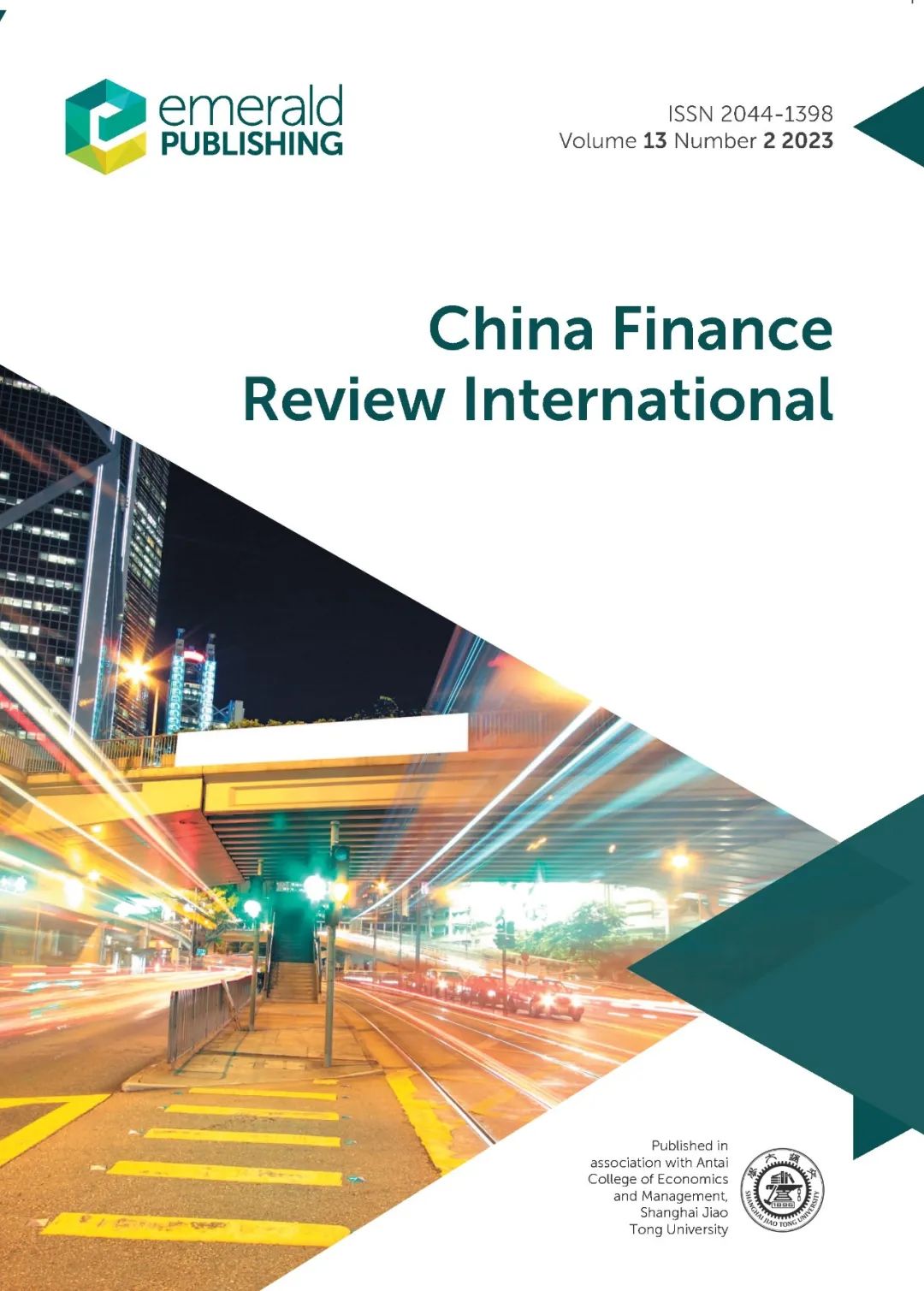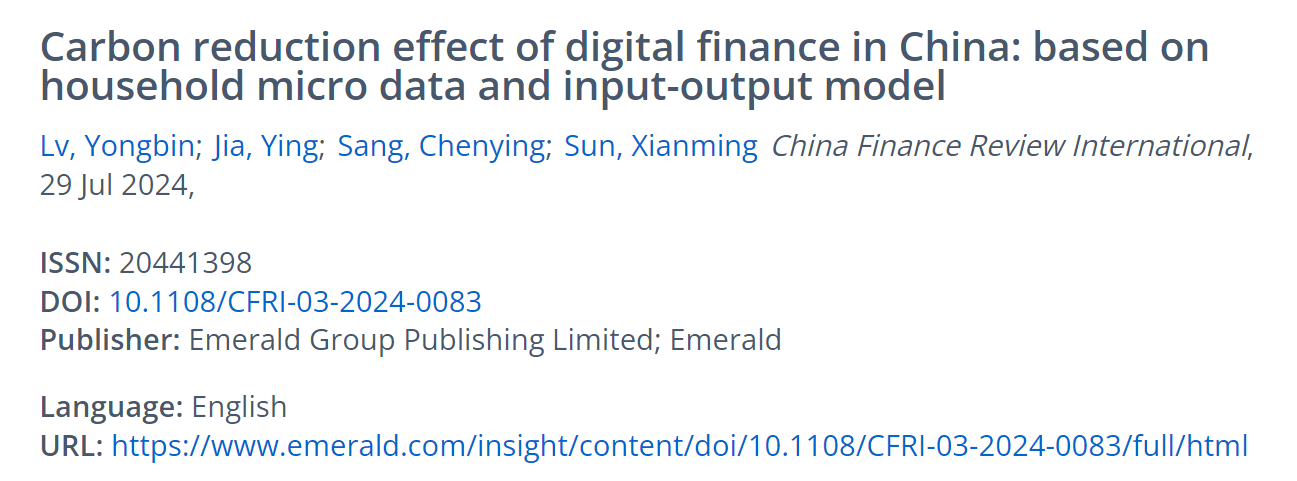The collaborative paper titled "Carbon reduction effect of digital finance in China: based on household micro data and input-output model" by Professor Yongbin Lv, Deputy Director of the base, and Associate Professor Xianming Sun has been published online in the academic journal China Finance Review International (CFRI). With an impact factor of 9.0 in 2023, CFRI ranks 3rd globally in the field of Business/Finance. In the broader field of economics, CFRI is honored as a top journal in Zone 1, and similarly, it is also ranked in Zone 1 in the subcategory of "Business: Finance and Economics".


Purpose
This study investigates the causal relationship and mechanisms between the development of digital finance and household carbon emissions. Its objective is to explore how digital finance can influence the carbon footprint at the household level, aiming to contribute to the broader understanding of financial innovations' environmental impacts.
Design/methodology/approach
The research combines macro and micro data, employing input-output analysis to utilize data from the China Household Finance Survey (CHFS) for the years 2013, 2015, 2017, and 2019, national input-output tables, and Energy Statistical Yearbooks. This approach calculated CO2 emissions at the household level, including the growth rate of household carbon emissions and per capita emissions. It further integrates the Peking University Digital Financial Inclusion Index of China (PKU-DFIIC) for 2012–2018 and corresponding urban economic data, resulting in panel data for 7,191 households across 151 cities over four years. A fixed effects model was employed to examine the impact of digital finance development on household carbon emissions.
Findings
The findings reveal that digital finance significantly lowers household carbon emissions. Further investigation shows that digital transformation, consumption structure upgrades, and improved household financial literacy enhance the restraining effect of digital finance on carbon emissions. Heterogeneity analysis indicates that this mitigating effect is more pronounced in households during the nurturing phase, those using convenient payment methods, small-scale, and urban households. Sub-index tests suggest that the broadening coverage and deepening usage of digital finance primarily drive its impact on reducing household carbon emissions.
Practical implications
The paper recommends that China should continue to strengthen the layout of digital infrastructure, leverage the advantages of digital finance, promote digital financial education, and facilitate household-level carbon emission management to support the achievement of China's dual carbon goals.
Originality/value
The originality of this paper lies in its detailed examination of the carbon reduction effects of digital finance at the micro (household) level. Unlike previous studies on carbon emissions that focused on absolute emissions, this research investigates the marginal impact of digital finance on relative increases in emissions. This method provides a robust assessment of the net effects of digital finance and offers a novel perspective for examining household carbon reduction measures. The study underscores the importance of considering heterogeneity when formulating targeted policies for households with different characteristics.
Keywords:Digital finance; Household carbon emissions; Digital transformation; Consumption structure; Financial literacy
Link:https://doi.org/10.1108/CFRI-03-2024-0083
